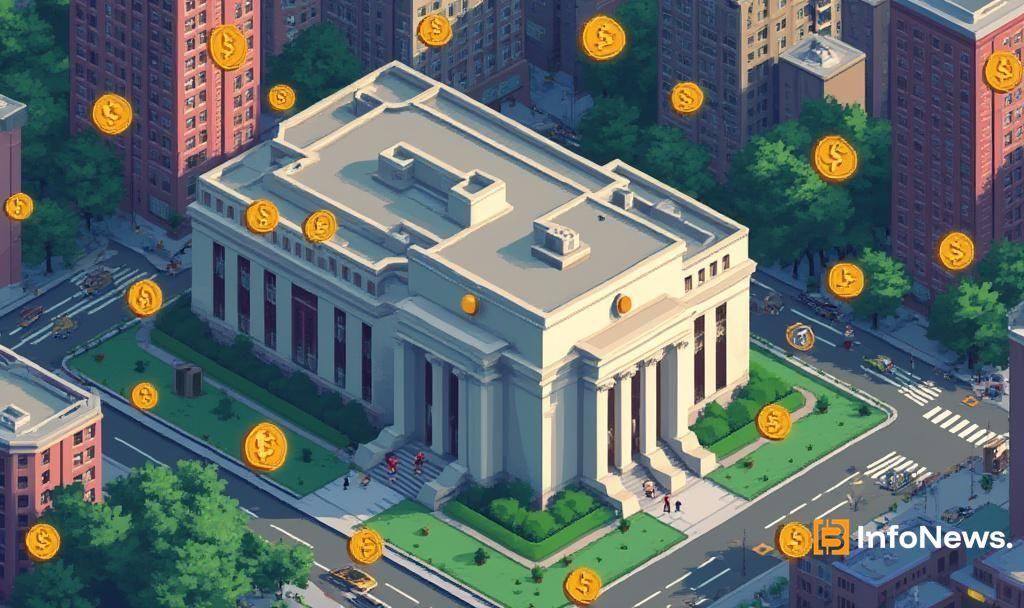based on materials from the site - By BitcoinInfoNews.Com

The Federal Reserve is monitoring the impact of the GENIUS Act on American stablecoins following its signing by President Trump on July 18, 2025.
The Act establishes strict regulatory measures, potentially altering the market structure, issuer qualifications, and compliance requirements for stablecoins in the cryptocurrency sector.
This system is critical as it could change the stablecoin markets by tightening reserve requirements and ensuring compliance, significantly impacting the financial ecosystems of the U.S.
The reorganization of the regulatory framework aims at stablecoin reserve standards.
The GENIUS Act creates a comprehensive regulatory framework for payment stablecoins. It establishes stringent reserve requirements affecting all major USD-backed stablecoins and their use in the U.S.
Key players include the U.S. Congress, the Department of the Treasury, and the Office of the Comptroller of the Currency (OCC), with a focus on issuer qualifications and regulatory framework development. Regulators oversee compliance and market adjustments.
The GENIUS Act establishes a reliable foundation ensuring that only compliant organizations can issue payment stablecoins, enhancing consumer protection and market integrity.
— U.S. Department of the Treasury
The new compliance period threatens non-compliant stablecoins.
New rules impose significant changes on stablecoin issuers, providing an 18-month compliance period. Non-compliant tokens risk being banned, potentially leading to a redistribution of market shares.
Changes in liquidity and asset distribution may be observed in the U.S. stablecoin markets, impacting the use of altcoins. Experts predict a restructuring of non-compliant tokens.
Regulation in the U.S. aims to mirror international precedents.
Previously, American stablecoins operated under state laws without uniform federal regulation. Unlike markets such as Japan, regulation in the U.S. seeks transparency.
Future changes in the market are likely to reflect international precedents, where compliant tokens will dominate as regulation stabilizes the ecosystem, as noted in historical trends.
